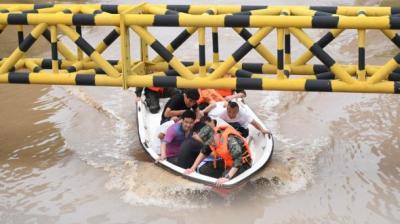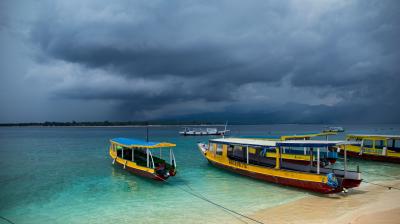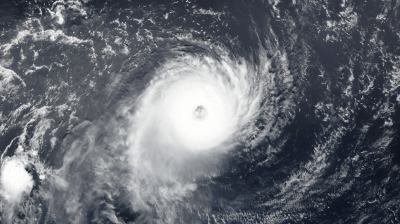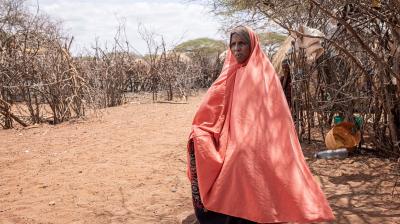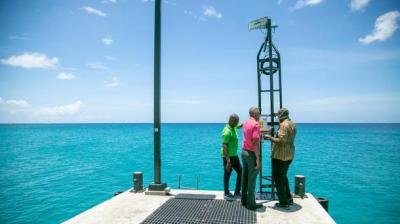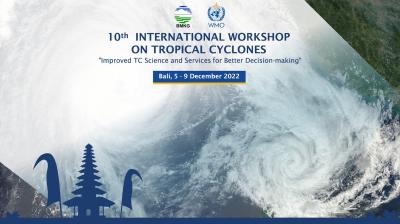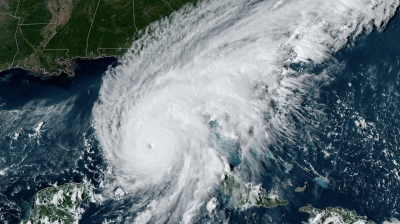Cairo Roundtable advances on Early Warnings for All
A Cairo Roundtable on the UN Global Early Warning Initiative: Developing the Global Architecture for Delivery on Early Warnings for All, hosted by the Egyptian Foreign Affairs Ministry in Cairo, Egypt from 5-6 September, 2022, has advanced plans to ensure that early warnings reach everyone in the next five years.

A Cairo Roundtable on the UN Global Early Warning Initiative: Developing the Global Architecture for Delivery on Early Warnings for All, hosted by the Egyptian Foreign Affairs Ministry in Cairo, Egypt from 5-6 September, 2022, has advanced plans to ensure that early warnings reach everyone in the next five years.
A WMO delegation led by Secretary-General Prof. Petteri Taalas joined Selwin Hart, Assistant Secretary-General for Climate Action, and senior representatives of UN partners, development and humanitarian agencies, the diplomatic community and WMO Members at the two-day event hosted by Egypt. Ambassador Ayman Amin of Egypt's Ministry of Foreign Affairs briefed participants on how the outcome will inform an action plan to be presented at the United Nations Climate Conference, COP27, in Egypt in November.
Pronouncing that “early warnings and action save lives,” UN Secretary-General Antonio Guterres unveiled the initiative on World Meteorological Day on 23 March 2022.
He has tasked WMO with spearheading the campaign.
“Today, one third of the world’s people, mainly in least developed countries and small island developing states, are still not covered by early warning systems... This is unacceptable, particularly with climate impacts sure to get even worse. Early warnings and action save lives,” said Mr Guterres.
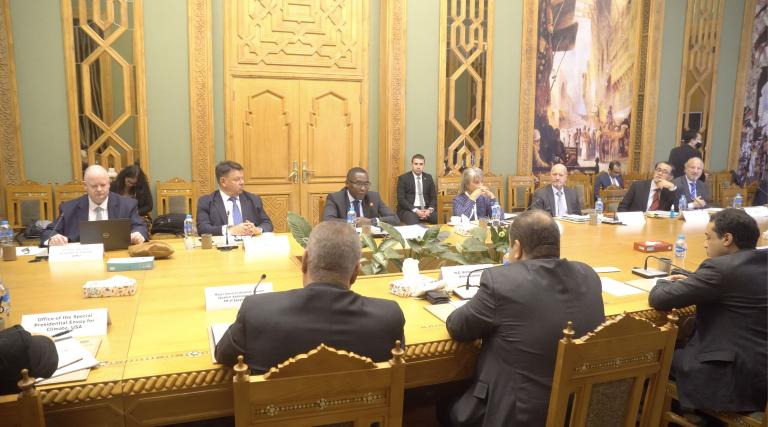
With 3.3 to 3.6 billion people living in contexts that are highly vulnerable to climate change, and global temperatures continuing to rise, it is more important than ever that the international community now send a strong commitment to act to ensure every person on Earth is protected by early warning systems within the next five years
Early Warning Systems are a proven, effective, and feasible climate adaptation measure, that save lives, and provide a tenfold return on investment. The Intergovernmental Panel on Climate Change’s Sixth Assessment Report on Impacts, Adaptation, and Vulnerability recognized early warning systems as one of the key adaptation options.
The practicality, implementability, and universal political appeal of early warning systems makes them a fitting focus area of COP27. H.E. President El-Sisi of Egypt recently highlighted turning promises and pledges into implementation on the ground as a top priority of Egypt’s COP27 Presidency.
Both COP26 and COP27 Presidencies have called for developed countries to follow through on their commitments made in Glasgow to at least double their climate finance for adaptation to developing countries by 2025, aiming at achieving balance between funding adaptation and mitigation.
The Cairo Roundtable presented advanced analysis to improve the understanding of the global status of early warnings, across the full early warning to early action value cycle, including a mapping of international early warning development efforts already planned for the next 5 years. It took stock of progress to date, present options for scaling up the financing landscape, and discuss political commitments to advance Early Warnings for All in key international processes.
It heard presentations from partners on existing work around early warnings and opportunities for expansion. Workstreams addressed the four components of an early warning system: disaster risk knowledge; monitoring, forecasting, observations, and analysis; warning dissemination and communication; and preparedness and response capabilities. These workstreams cut across the finance and private sector. The Roundtable also heard political statements of commitment.
Mr Hart, Assistant Secretary-General for Climate Action, stressed the need for “a concrete and credible action plan moving forward.”
Participants included representatives of the UN Development Programme, UN Environment Programme and UN Office for Disaster Risk Reduction, as well as the World Bank, Green Climate Fund, African Development Bank, Climate Investment Fund and the World Economic Forum. Major General Tahoun, Director of Egyptian Meteorological Agency, gave the Egyptian NMHS perspective.
A Ministerial meeting on Integrated Early Warning and Early Action System Initiative, held in Maputo on 5-9 September, also stressed the need to bridge the gap between early warning and early action. The Maputo Declaration committed itself to taking an active role “to ensure that all citizens, in particular the most vulnerable communities in the Southern African Development Community are covered by effective Early Warning and Early Action system initiatives.”
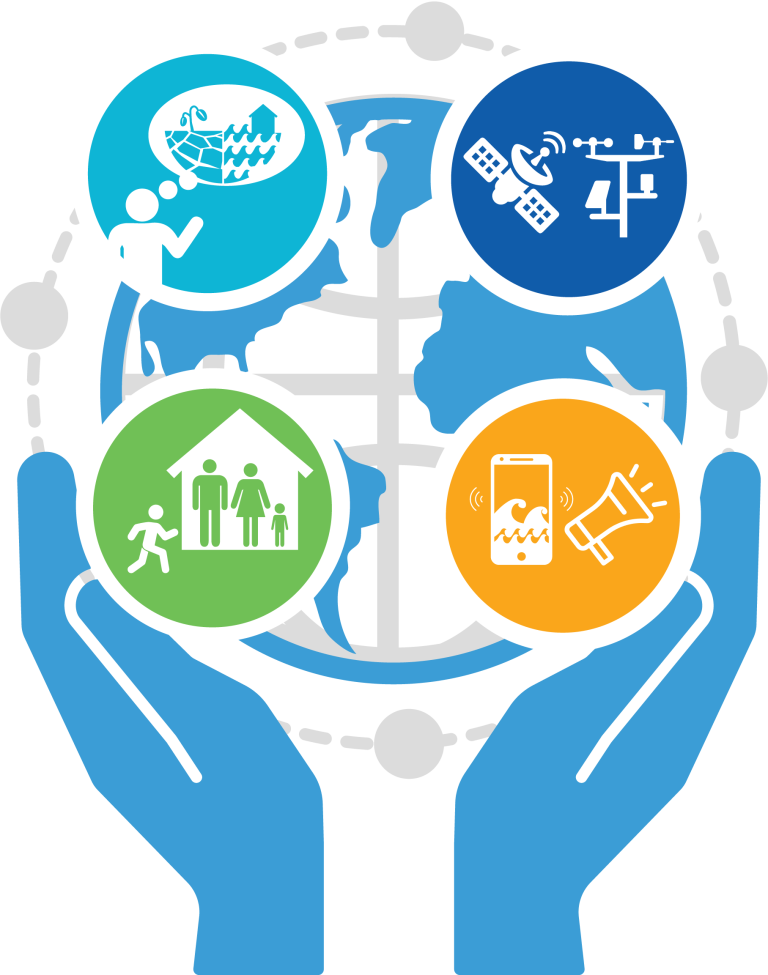
The architecture for the Early Warnings for All initiative will be based on globally agreed guidance on Multi-Hazard Early Warning Systems. It will map the actions required of the hydro/meteorological, disaster risk, and early action communities to ensure every person on Earth is protected by early warnings within five years.
The developing plan is underpinned by key building blocks such as the Systematic Observations Financing Facility (SOFF), the Climate Risk and Early Warning Systems (CREWS) initiative, the Risk-Informed Early Action Partnership (REAP), and the Water and Climate Coalition Leaders Action Plan, and leverages other mutually complementary COP27 priorities, such as the Action for Water Adaptation and Resilience (AWARE) initiative, particularly in the context of early warnings for floods and droughts – two of the most impactful climate hazards that societies face.
Next week, on the margins of the Seventy-Seventh Session of the United Nations General Assembly, countries will come together in an Early Warnings for All side event in New York, to support the call from Secretary-General Guterres and underscore the importance of elevating early warnings as a key climate adaptation measure at the upcoming UN Climate Change conference in Egypt in November.
- WMO Member:
- Egypt


